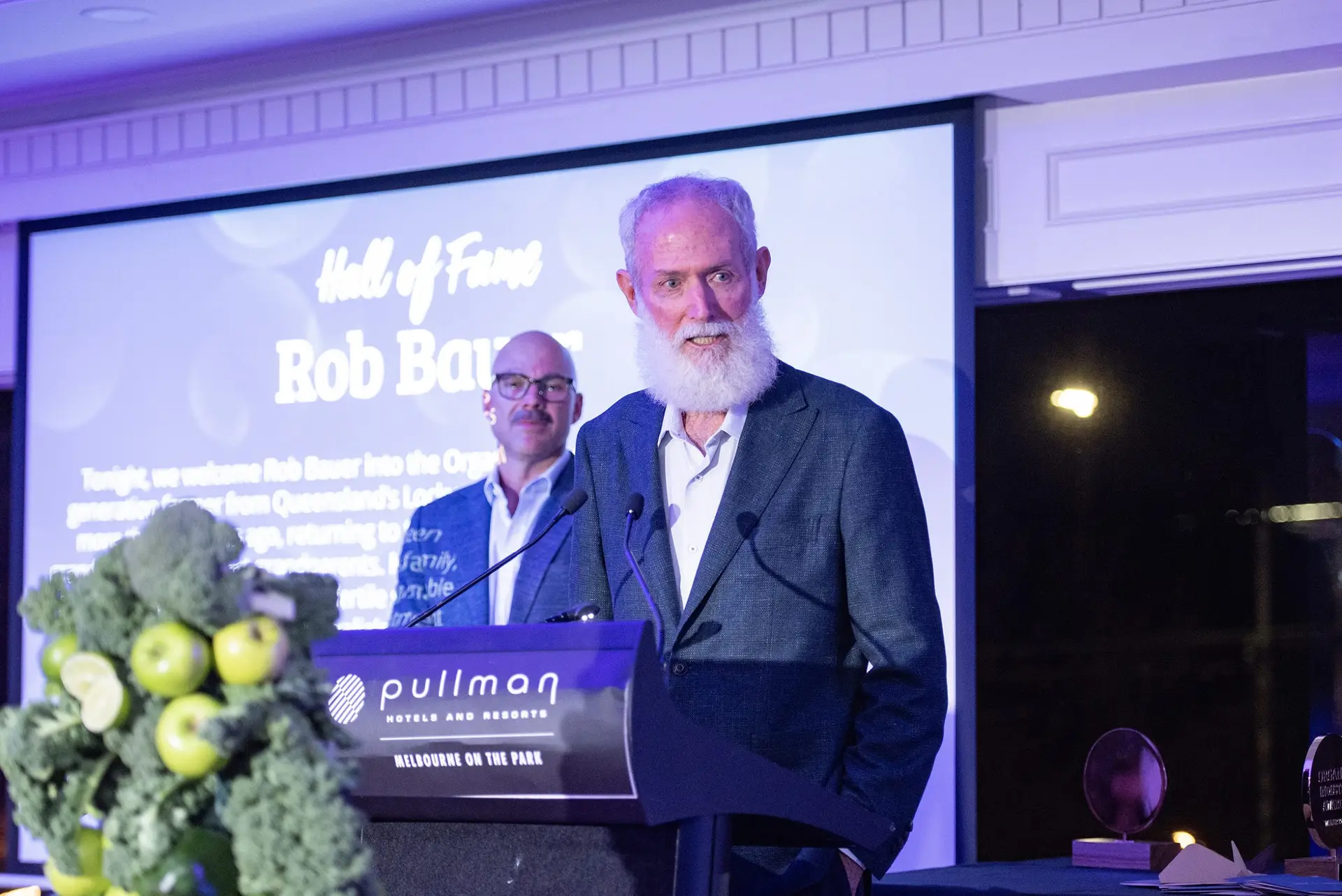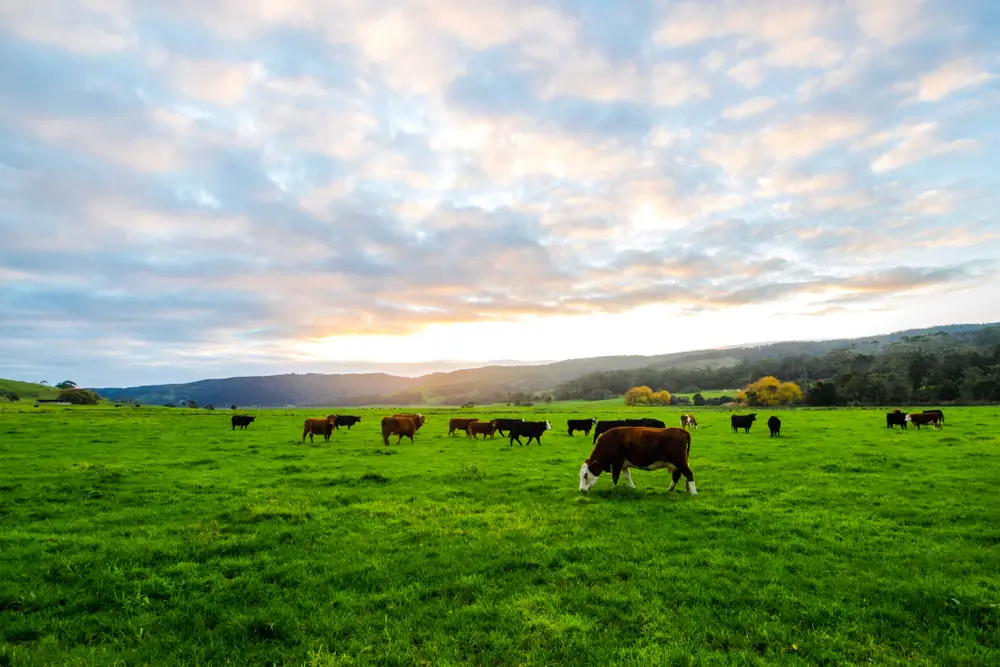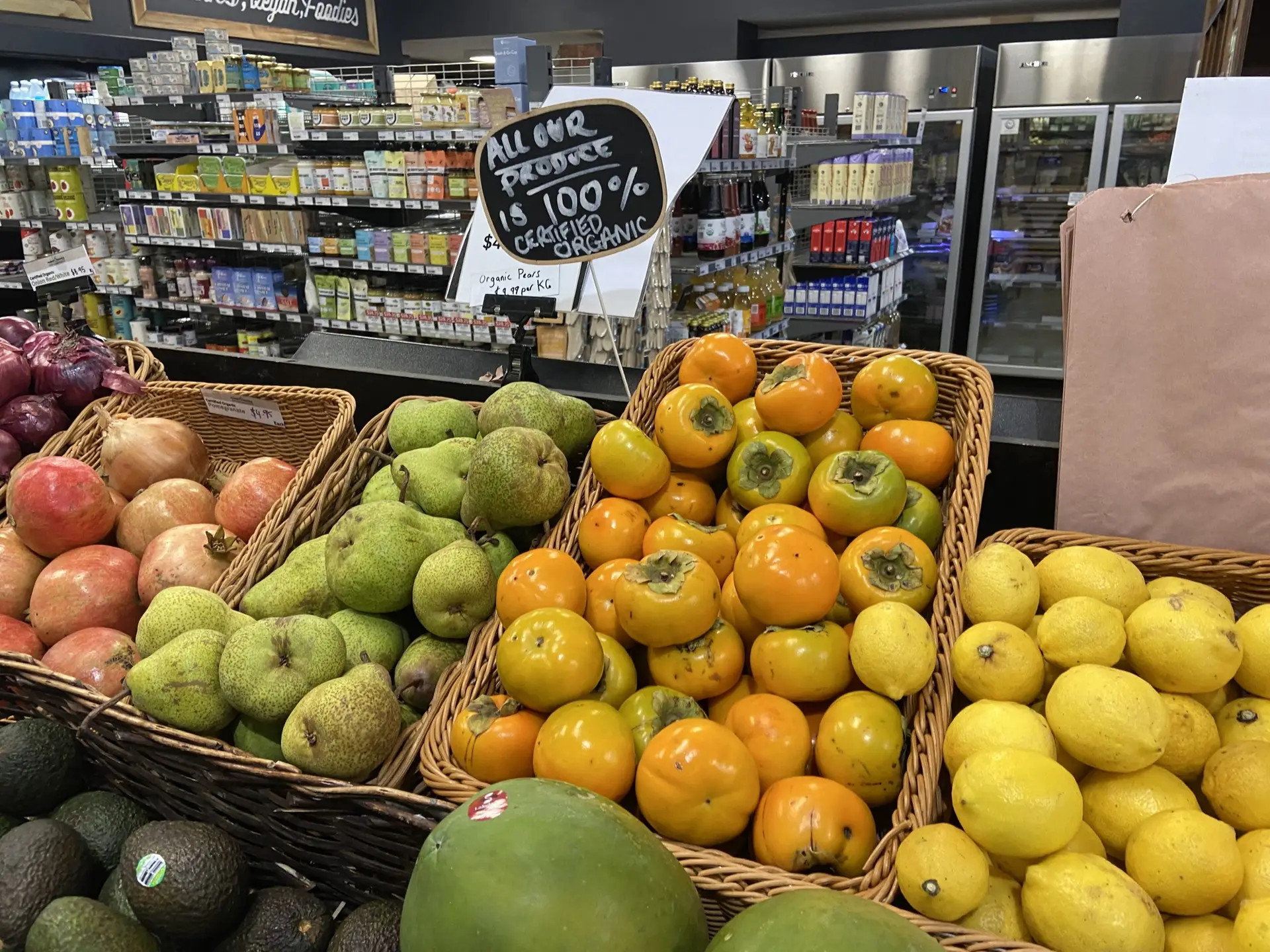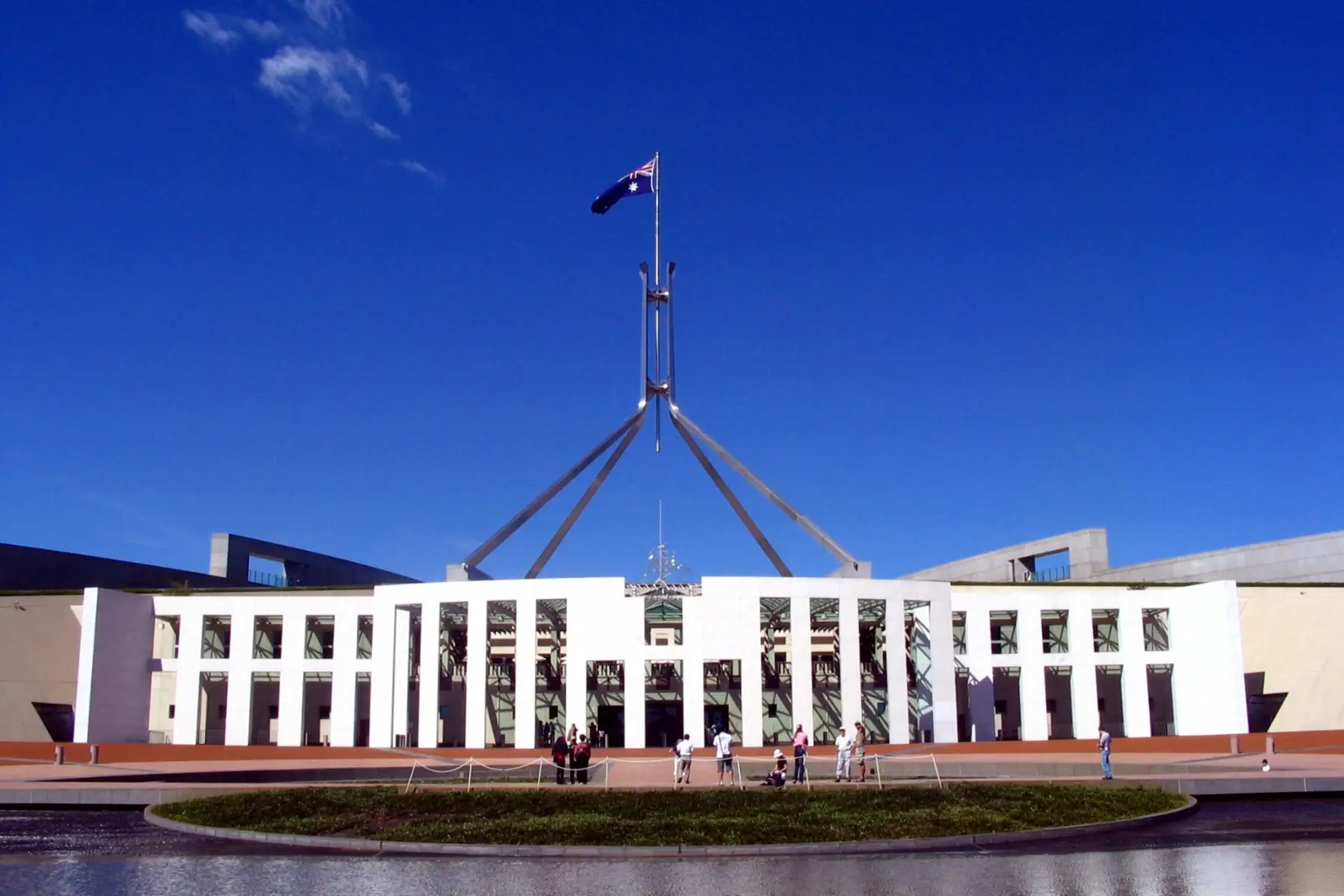Rugby league legend and 2023 Australian Organic Awareness Month Ambassador, Anthony Minichiello, has backed the push for stronger regulations around organic ‘greenwashing’.
Now a qualified nutritionist, Mr Minichiello advocates for certified organic farming practices as a key element of a nutrient-dense diet.
“There’s a lot of misleading marketing claims and fake studies out there that confuse people,” he said.
“Organics is back to basics essentially – pure farming free of harmful inputs that gives you the most nutrient-dense produce.
“The only way to know if what you’re eating is truly organic is by checking the label for a certification mark like the Australian Certified Organic ‘Bud’ logo.”
There is currently no regulation in Australia around the use of the word ‘organic’. As a result, products can claim to be ‘organic’ with as little as two per cent of the ingredients being actually certified organic.
The Australian Organic Market Report 2023, commissioned by Australian Organic Limited (AOL) and conducted by independent consulting firm ACIL Allen, underscored the need for regulation to protect consumers and certified organic producers from greenwashing.
During 2022, 33 per cent of organic shoppers surveyed purchased a product thinking it was organic based on packaging claims, only to later find it was not. This is an increase from 31 per cent in the previous Market Report published in 2021.
An increasing number of products also come with statements around sustainability credentials. The 2023 Market Report noted a rise in such claims during 2022, with operators more often characterising their products as socially responsible, environmentally friendly, packaged sustainably, or contributing to improved animal welfare.
The Australian Securities and Investments Commission (ASIC) launched its first ever greenwashing court proceedings this year, suing Mercer Super for allegedly misleading consumers over the sustainability of its investments.
The European Parliament last week announced it will introduce new laws to protect consumers from greenwashing by banning unsubstantiated claims on packaging including “environmentally friendly”, “eco” and “natural”.
Lax labelling laws in Australia are the main contributor to a significant portion of shoppers still citing trust in organic status as a barrier to purchase, according to AOL Chief Executive Officer, Niki Ford.
“Until the laws are changed to stop uncertified operators marketing their product as ‘organic’, some consumers will understandably feel hesitant when making a purchase,” Ms Ford said.
“A lack of domestic regulation on the use of the term ‘organic’ is jeopardising the efforts of hardworking certified organic operators who are helping push sustainability forward.
“Certified organic logos are a mark of trust that products have been verified to strict organic guidelines, such as the Australian Certified Organic Standard (ACOS).
“Certified organic operators have made a choice to undertake rigorous audits by government approved certification bodies. This allows them to prove their organic credentials and build consumer confidence in our growing industry.
“The only way to be truly confident that the product you’re buying is 100 per cent organic is to look for a certification on packaging.”
Domestic regulation is supported by organic producers around the country, including Australia’s leading certified organic wine producer, Angove Family Winemakers.

“It’s very difficult for a producer making misleading claims to be held to account,” Managing Director and fifth-generation wine producer, Victoria Angove, said.
“We need claims of being organic validated by formal certification. There is a loophole there and we would like to see it closed.
“For our industry to reach its full potential, we need the support of a domestic standard to ensure all operators are doing the right thing.
“This will instil confidence in our customers that the produce they are buying from Australia is the best in the world.”
Hear more from Australian Organic Awareness Month 2023 Ambassador, Anthony Minichiello, here.
Australian Organic Awareness Month is run by Australian Organic Limited in September each year, promoting the certified organic industry across all categories including fresh produce, packaged food and beverages, cosmetics and skincare, home and garden products and textiles.
To learn more about Australian Organic Awareness Month, visit the website. Read more about organic certification and its history in Australia here.
Media enquiries:
Matt Wordsworth
matt.wordsworth@bluehillpr.com.au
0404 029 241
Tim Vetter
tim.vetter@bluehillpr.com.au
0439 681 793





